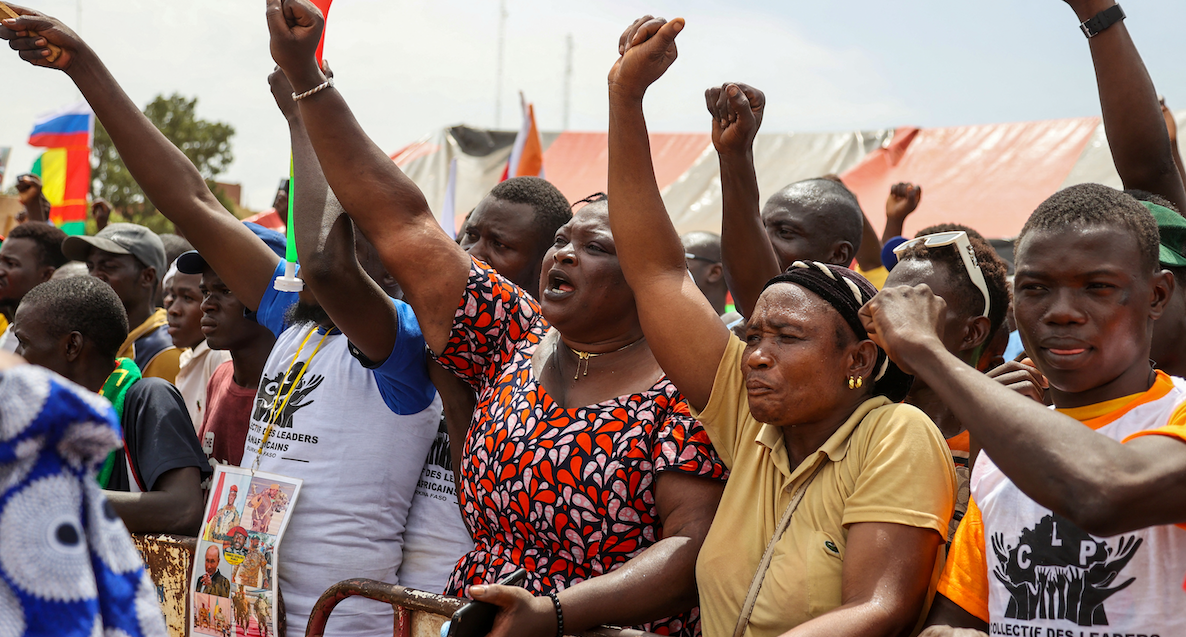Mali, Burkina Faso, and Niger say they have
withdrawn from West Africa’s largest political bloc – but the Economic Community of West African States says it hasn’t received the paperwork. It won’t matter much in the short term because all three were already suspended by ECOWAS following military coups in their countries. Big picture? The move underlines an emerging cleavage in international alignment between the Sahel, trending toward Russia, and the coastal states with stronger ties to the US and Western Europe.
Junta leaders in Mali, Burkina Faso, and Niger have cut ties with their former French colonial overlords and kicked out French troops meant to fight terrorist groups threatening communities in the arid grasslands south of the Sahara Desert. In their place? Russian mercenaries, naturally, who have allegedly been complicit in a spate of atrocities over the last two years.
While the coups have done little to stave off the terrorists (the region suffered thousands of attacks last year), they’ve done a much better job scaring off troops from neighboring democracies. A threatened military intervention in Niger to be led by Nigeria last year amounted to nothing, and no one in the region is eager to put lives on the line now.
ECOWAS isn’t casting itself in the best light. When coup leaders in Niger invited an ECOWAS delegation to talks about the bloc’s sanctions in the capital Niamey on Friday, only Togo showed up. The other delegates said their plane got stuck in Abuja with mechanical issues.
There may be an odd silver lining in the disorganization, though. Since ECOWAS rules require states to file for withdrawal a year in advance, and no one seems to have bothered to put in an official notice, rejoining may not be such a technical hurdle should the political winds shift. We’ll be watching (but not holding our breath) to see whether Mali and Burkina Faso go ahead with elections scheduled for later this year.
